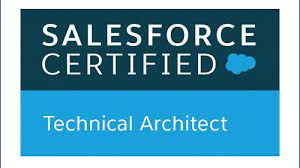Is there a demand for technical Salesforce architects?
Indeed, there is a significant demand for Salesforce technical architects capable of designing, implementing, and overseeing cloud architectures that align with the needs and expectations of businesses. These architects should possess knowledge of various cloud platforms and services such as AWS, Azure, Google Cloud, or Salesforce.
Successful Salesforce architects exhibit both big-picture thinking and in-depth problem-solving skills. While they require broad and deep technical knowledge, they also need soft skills such as listening, communication, and presentation abilities. Surprisingly, becoming an architect doesn’t necessarily require a development background. However, architects should be proficient in reading code, recommending coding best practices, and knowing when to code and when to leverage declarative (clicks not code) solutions.
Salesforce architects often contribute expertise in integrating Salesforce with other technologies, governance, and development operations. They blend technical proficiency with business acumen to empower collaboration between business and IT for a stronger future.
In the realm of Salesforce, a Salesforce Architect serves as a trusted advisor and leader, collaborating with business stakeholders to design a vision and architecture for solving business problems. Positioned as the technical team leader, they educate teams on technical best practices and translate business needs into a technical vision executable by low code or pro code builders. Architects also develop proofs-of-concept (POCs) for iterative team enhancements.
In Salesforce implementations, architects design the organization’s strategy and data model, implement solutions for identity and access, manage data and process integrations, and address challenges related to large data volumes and data privacy. They identify optimal solutions for business requirements, recommending the use of clicks, code, or a combination based on the specific business use case. As seasoned problem solvers, architects often serve as the final escalation point for any production issues.
Content updated February 2024.










